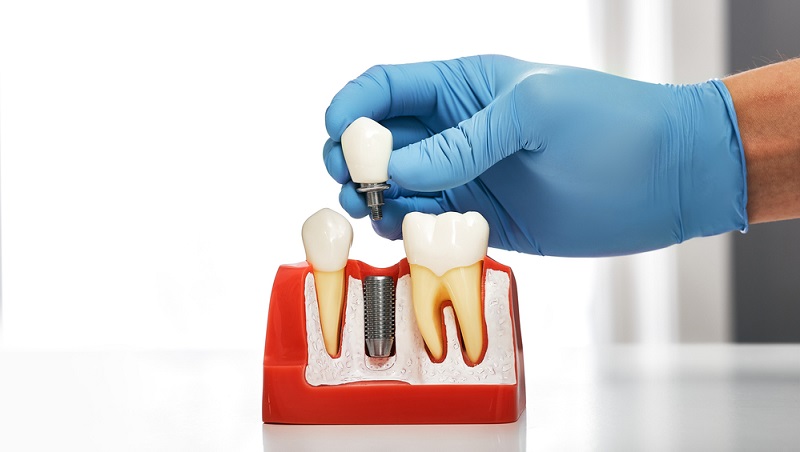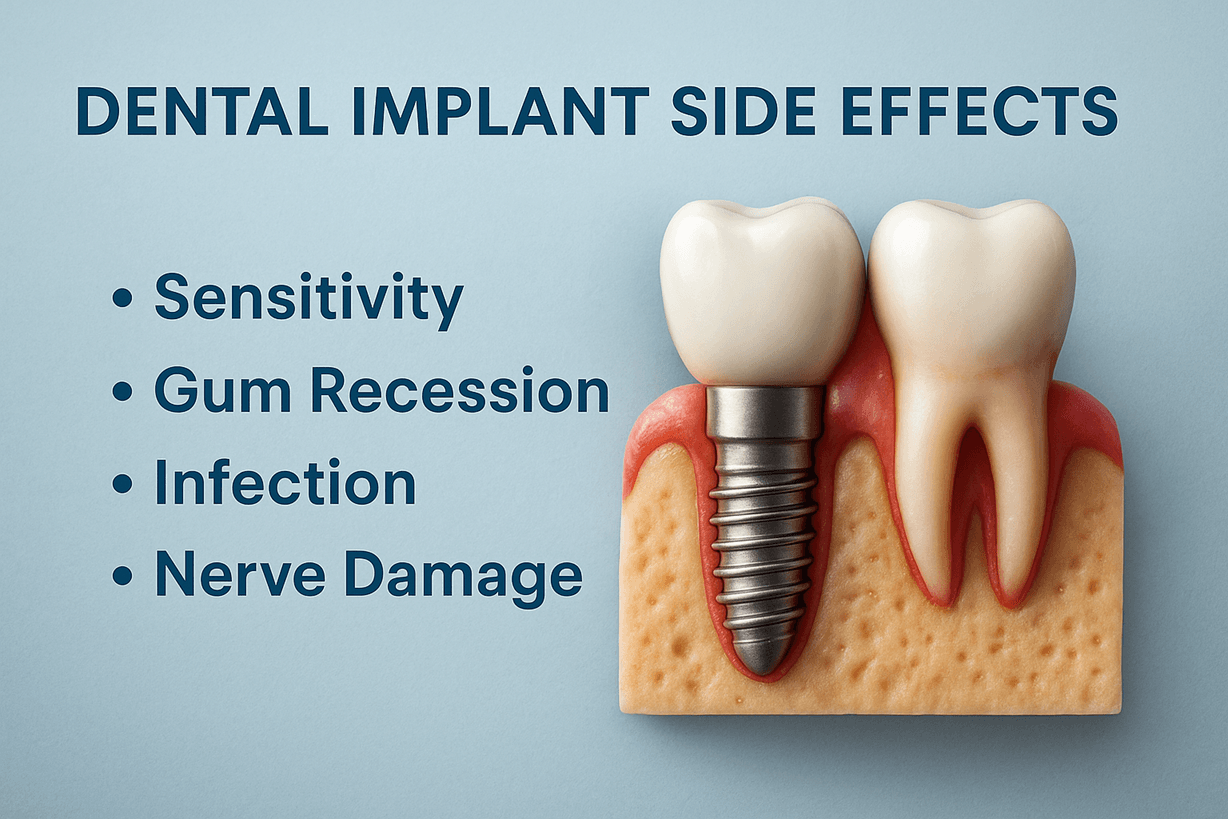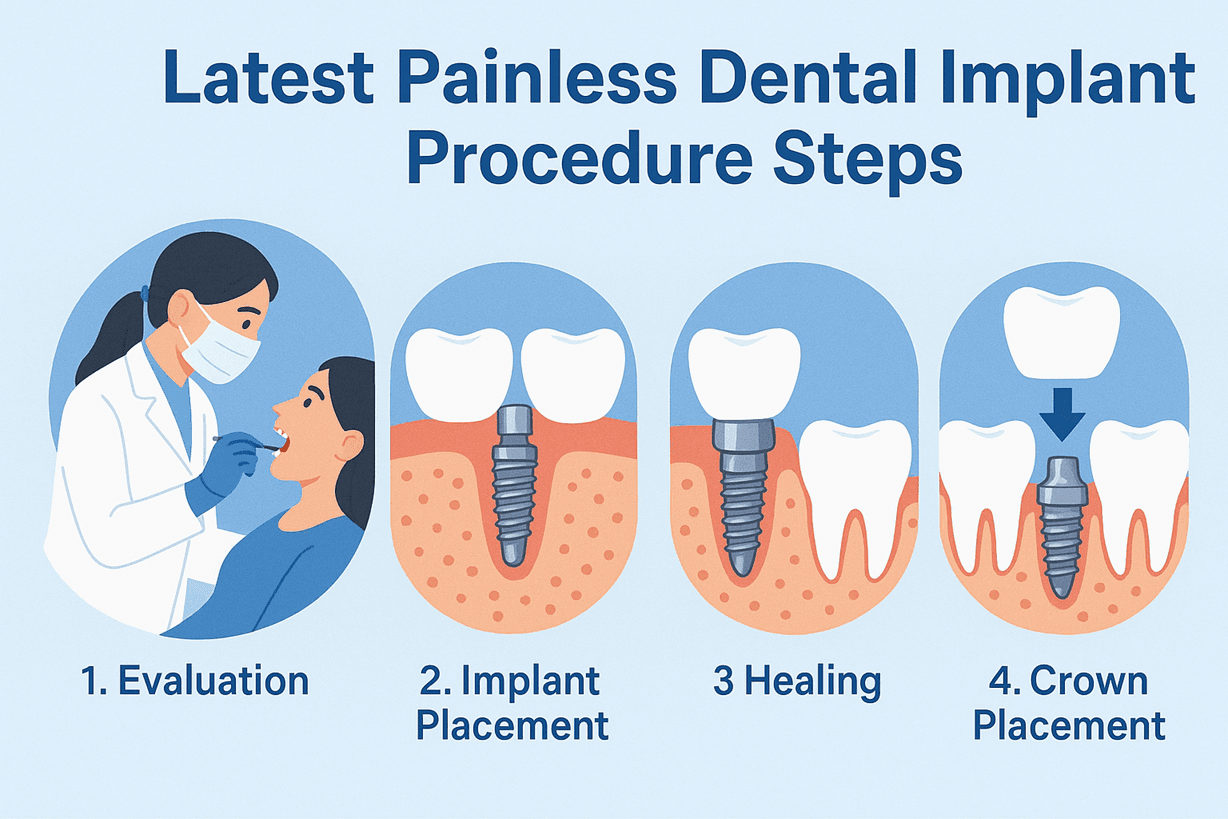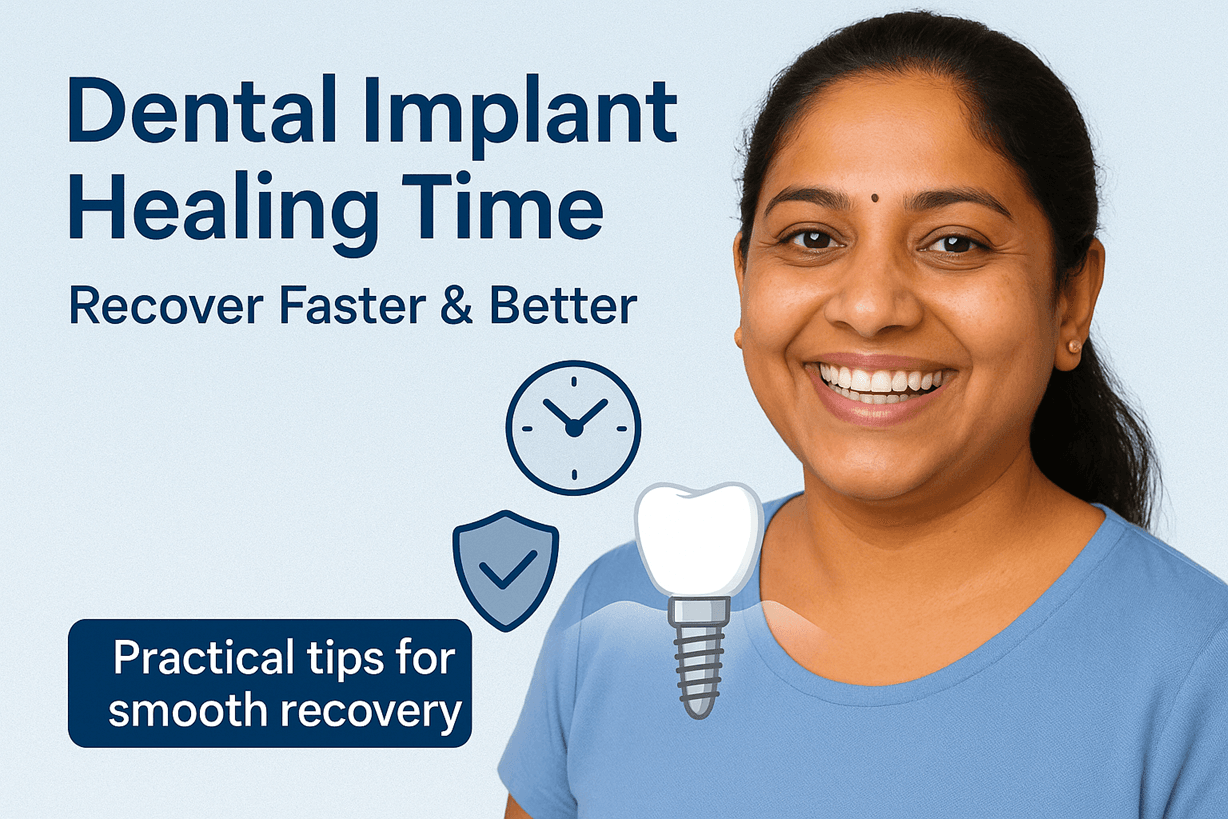Contents
- What are Dental Implants?
- What is the Procedure for Getting a Dental Implant?
- Who can get dental implants?
- What to Expect During the Procedure?
- Finding the Right Clinic for Your Procedure
- What are the Risks and Complications of Getting a Dental Implant?
- Alternatives to Dental Implants

Are you considering dental implants but don't know where to start? Don't worry, we've got you covered! In this blog post, we'll take you through the entire dental implant procedure from start to finish.
From the initial consultation with your dentist all the way through to the final restoration of your beautiful new smile, we'll give you everything you need to know so that there are no surprises along the way.
So sit back, relax and be ready for a comprehensive guide on what to expect during your dental implant journey!
What are Dental Implants?
Dental implants are a popular and effective tooth replacement option for many people. The dental implant procedure is typically a safe and successful treatment, with a high success rate.
However, as with any surgical procedure, there are some risks and potential complications that you should be aware of before having dental implants placed.
In this article, we will give you a detailed overview of the dental implant procedure, from start to finish.
We'll discuss what to expect during each stage of the procedure, as well as what you can do to ensure that your dental implants have the best chance for success.
What is the Procedure for Getting a Dental Implant?
- The first step in getting dental implants is to book a consultation with your dentist to see if you are a good candidate for the procedure.
- During the consultation, your dentist will take X-rays and impressions of your teeth to determine the size and placement of the implants.
- If you are approved for dental implants, the next step is to have surgery to place the implants in your jawbone. This surgery is usually done under local anaesthesia and takes about an hour.
- After the surgery, you should wait several months for the implants to fuse with your jawbone before they are used to support a tooth.
- Once the implants have fused with your jawbone, you need to return to your dentist so they can attach the artificial tooth (or teeth) to the implant.
- This final step is usually done using a screw or abutment that is tightened into place.
Who can get dental implants?
Not everyone is a candidate for dental implants, as certain factors can affect the success of the procedure.
Here are some considerations:
1. Sufficient bone density:
You should have sufficient bone density and volume in the jawbone to support the dental implant. If there is not enough bone, bone grafting procedures may be necessary before the implant placement.
2. Good oral health:
Dental implants require good oral health to ensure long-term success. Patients with active gum disease, untreated cavities or other oral infections may not be suitable candidates.
3. General health:
Certain medical conditions or medications can impact implant success. Patients with uncontrolled diabetes, blood clotting disorders, or a history of radiation therapy to the head and neck may not be ideal candidates.
4. Smoking:
Smoking can also negatively affect the success rate of dental implants, and in some cases, it may be advised that a patient quit smoking before undergoing implant surgery.
5. Commitment to Oral Hygiene:
Good oral hygiene is vital for the long-term success of dental implants. Patients who are not committed to proper oral hygiene may not be suitable candidates.
It's important to thoroughly consult a dental professional to determine whether dental implants are the right option for you.
An experienced dentist or oral surgeon can evaluate your overall health and specific dental needs to determine the most appropriate treatment plan.
What to Expect During the Procedure?
During the dental implant procedure, you can expect the dentist to make small incisions in your gums to place the implant.
You will be given a local anaesthetic to numb the area before the incisions are made.
The implant will be placed into the socket of your tooth and allowed to heal for a few months.
Once the implant has healed, you will need to return to the dentist to have a crown or bridge placed on top of it.
Finding the Right Clinic for Your Procedure
Choosing the right clinic for your dental implant procedure is crucial. Here are some steps to help you make an informed decision:
- Research: Look for reputable clinics with experience in dental implant surgery. Ask your dentist for recommendations or read online reviews.
- Consultations: Schedule consultations with potential clinics to meet the doctors and understand their experience and expertise.
- Experience: During consultations, ask about the doctor’s experience with dental implants and how many procedures they’ve performed.
- Success Rate: Inquire about the clinic’s success rate and any complications from previous surgeries.
- Comfort Level: Ensure you feel comfortable and confident with the clinic before moving forward.
Follow these steps to find a clinic that meets your needs and provides a safe and successful dental implant procedure.
What are the Risks and Complications of Getting a Dental Implant?
When getting dental implants, it is important to be aware of the risks and complications associated with the procedure. These can include:
1. Infection:
If the implant site is not kept clean, there is a risk of infection. This can cause pain, swelling, and redness. It can also lead to implant failure.
2. Nerve damage:
There is a small risk that the nerves in the jaw could be damaged during dental implant surgery. This could lead to numbness or tingling in the lips, gums, or chin.
3. Sinus problems:
Dental implants can sometimes interfere with sinuses. This can cause pain and pressure in the sinus area. In some cases, it may be necessary to have sinus surgery.
4. Bone loss:
If there is not enough bone supporting the dental implant, it can fail. This is more likely to happen in smokers or people with certain medical conditions.
5. Failure of implant:
Although dental implants are usually successful, they can fail. This can happen if there is an infection or if the bone does not heal properly around the implant.
Alternatives to Dental Implants
If you are considering dental implants, there are a few alternatives to keep in mind.
Dentures
Dentures are removable replacements for missing teeth. They can be taken out and put back in by the patient, and they do not require surgery.
Dental Bridges
Bridges are also used to replace missing teeth, but they are attached to surrounding teeth with crowns.
Unlike dental implants, bridges cannot be removed by the patient and they may need to be replaced every 5 to 7 years.
The dental implant procedure is a safe and effective way to replace missing teeth, restore your smile, and improve your oral health.
We hope that this article has provided you with valuable information on what the entire process entails so that you can make an informed decision about whether or not it is right for you.
If you have any further questions or would like to learn more, be sure to consult with a qualified dentist who can provide personalized advice.



